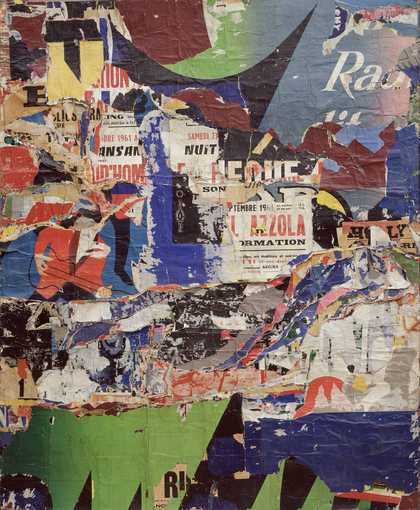
Jacques Mahé de la Villeglé
Jazzmen (1961)
Tate
Although the first time the term décollage appeared in print was in the Dictionnaire Abrégé du Surréalisme in 1938, it is usually used in the context of nouveau réalisme. The artists involved, such as Raymond Hains, often sought out sites with many layers of posters so that the process of décollage took on an archeological character and was seen as a means of uncovering historical information. They exhibited their ripped poster artworks as aesthetic objects and social documents. From 1949 Hains made work from posters that he tore from the walls of Paris.
In 1963 the German artist Wolf Vostell appropriated the term, staging a series of happenings under the title Nein 9 Decollagen which involved television images which he had ‘décollé’ unstuck from the screen and re-presented. In 1962 Vostell had founded Dé-coll/age: Bulletin Aktueller Ideen, a magazine devoted to the theoretical writings of artists involved in happenings, Fluxus, nouveau réalisme and pop art.
